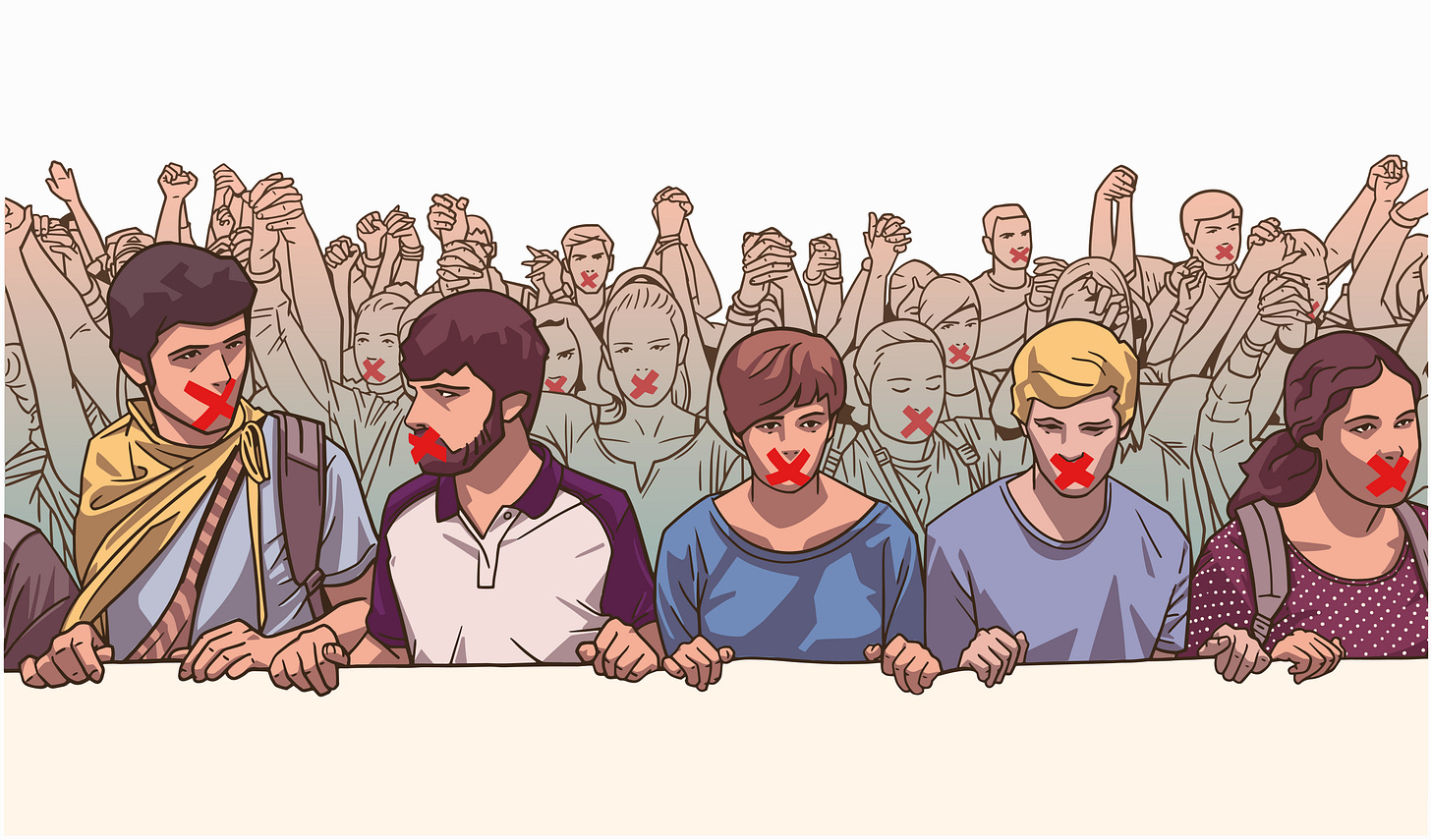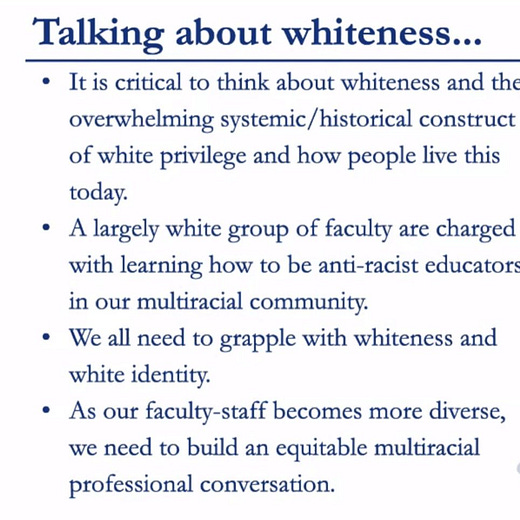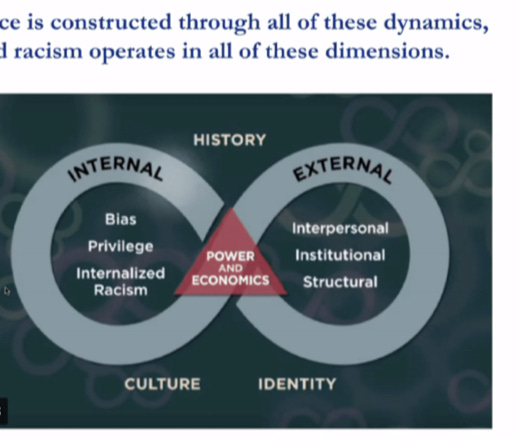E-Pluribus | June 9, 2021
More politics will not improve Big Tech's issues, is there a free speech alternative, and 10 principles on fixing K-12 education.
A round up of the latest and best writing and musings on the rise of illiberalism in the public discourse:
Katherine Mangu-Ward: Don't Try To Fix Big Tech With Politics
The power of Big Tech is all the rage these days, and Katherine Mangu-Ward opens her piece with a stark admission and admonition: “I don't know the correct level of content moderation by Facebook, Twitter, Google, or Amazon. And neither do you.” While not dismissing the impact that Big Tech can have on individuals and even their livelihoods, the far greater power of the state should be feared even more.
For every person arguing against moderation on the grounds of ideological bias, there is someone else pushing for more aggressive moderation to control rampant hate speech or "disinformation"—which can mean everything from objectively false claims to arguments that some users consider subjectively offensive. There are those who find the profit-making aspect of the whole industry distasteful, and there are those who fret about the difficulties faced by would-be competitors due to the sheer size of the companies in question.
The push to crack down on Big Tech is both bipartisan and fiercely politically tribal—the worst of both worlds.
[…]
It has become fashionable on both the left and the right to argue that Big Tech is now more powerful than a government or perhaps indistinguishable from one. Here is a list of things governments sometimes do if they dislike what you say or how you say it: lock you up, take your property, take your children, send you to die in a war. Here is a list of things tech companies sometimes do: delete your account.
Twitter, Facebook, Amazon, and Google do play a huge role in many people's lives. To be kicked off a popular platform can be deeply unpleasant and unnerving. But the notion that political interference will result in broader access to a better product is naive at best and dangerous at worst.
Read it all here.
Jesse Singal: Free-Speech Skeptics Don't Really Have Much Of A Theory Of Anything
In his latest, Jesse Singal takes on the notion that the current era is such a dangerous time in American society that it somehow warrants possible curbs on free speech. But even beyond that, Singal points out that these skeptics don’t seem to have much to offer as an alternative - simply saying that we wish to hear fewer terrible things is not a viable alternative to the First Amendment that has served us well for 230+ years.
[I]f we are to adopt the idea that we should question free speech principles when American society gets particularly turbulent or dangerous — and to be clear, I’m only saying this for the sake of argument since I think something pretty close to the opposite is true — how could you possibly pick 2021 as the time to do such questioning? Why not back in the 1960s and 1970s, when there was widespread rioting and regular political assassinations? Or during the peak of some truly horrifying periods of violent crime in major American cities? Hell, one can make a good-faith argument the George W. Bush years were significantly worse than the Trump years.
[…]
Overall, my gripe with a lot of this discourse is simply that the people who are speaking out very confidently against liberal free speech principles rarely lay out exactly what their alternative is, and when they do their arguments tend to be riddled with holes. I have been banging this drum for years, now. In many cases, these thinkers are being driven mostly by disgust — both at the existence of certain speakers and left-of-center figures ‘defending’ them (meaning expression opposition to their censorship or deplatforming) — but without much sophisticated thinking-through of what it would entail to meaningfully attenuate controversial figures’ ability to gather or express themselves publicly.
Read the whole thing.
Greg Lukianoff: The Empowering of the American Mind
Greg Lukianoff, president of the Foundation for Individual Rights in Education, has developed 10 principles to fix what ails K-12 education in America. A number of the principles revolve around teaching children how to learn, in part but not shoving them into boxes. One such principle is excerpted here.
Principle 9: Don’t reduce complex students to limiting labels.
Sorting students into politically useful categories that involve assigning them character attributes or destinies based on immutable traits circumscribes their potential and hampers their growth. Self-determination is foundational to the American promise and central to our unique national identity. Students must be permitted to decide for themselves how much, or how little, emphasis they wish to place on their race, ethnicity, religion, gender, social class, or economic background.
Americans form a sense of “us” based on a relatively small number of uniting factors like citizenship, pop culture, and, hopefully, appreciation and respect for the Constitution and democracy—our shared operating system. Under this “thin” identity tent, all are welcome. Other countries have much deeper or “thicker” ideas regarding what makes them a first-person-plural “us.” The thin model is better for a truly pluralistic diverse society. The thick identity is exclusive, inflexible, and deals poorly with genuine diversity.
A disturbing trend of my 20 years of watching higher education has been the breaking down of students into different racial groups for the purpose of everything from separate orientations to separate graduations. These groupings, while intended to improve a sense of community belonging, necessarily impede the forming of early friendships among people from different backgrounds. Doubtless, there will be some conflict when students who come from very different backgrounds meet each other. However, allowing students to resolve those differences amongst themselves will prepare them to navigate the diverse world they will inhabit outside of their school environments.
Read it all at Reason.
Around Twitter
Megan McArdle on the Propublica IRS story which is raising questions about the justification for illegally leaking private information to the media:
A short thread from the Foundation Against Intolerance & Racism on one teacher’s stand:
From Glenn Greenwald on the anti-free speech trend among some journalists:
Is the Dred Scott case ripe for cancellation?














